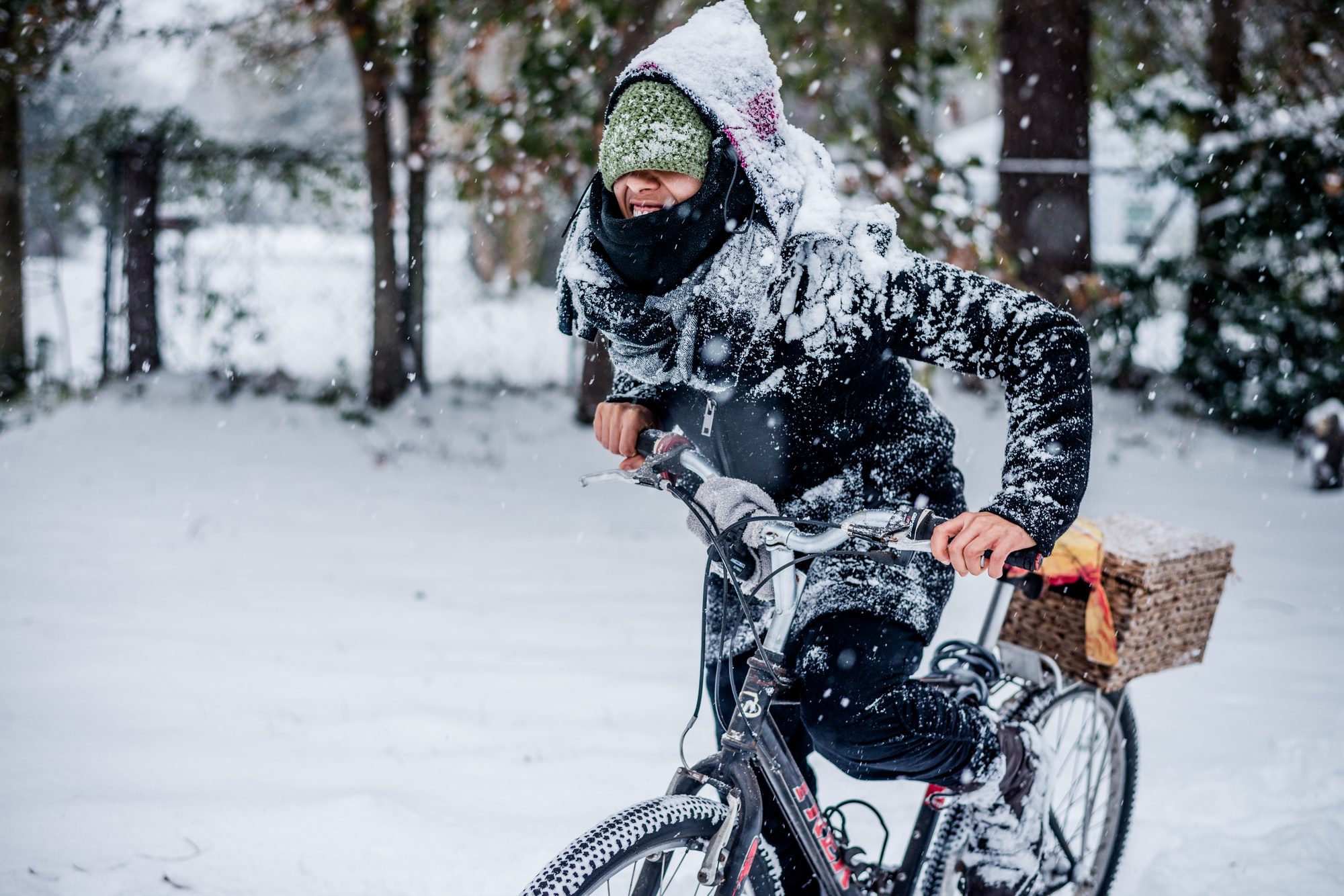Winter Storm Preparedness: Safety Tips During a Snowstorm

Do you remember the blizzard that crippled much of the East Coast of the U.S. and Canada in January 2018?
Known as Winter Storm Grayson, this blizzard took the lives of 22 people in total, and caused power outages and travel difficulties for thousands, if not millions, more.
Ice, snow, freezing temperatures, and wind chill are difficult enough to deal with on a day-to-day basis, but storms like Grayson — or the three back-to-back Nor’easters that occurred later in the season — can be downright dangerous. They can knock down electrical poles, leave motorists stranded, and make it awfully difficult to dig out. Do you have all the necessary supplies — and the know-how — to weather a Nor’easter or other debilitating winter storm?
Before the temperature begins to plummet and the snow starts falling, take a look at our guide to winter storm preparedness.
Be Informed
Particularly if you have moved to a cold, snowy climate and aren’t familiar with just how bad winter storms can get, it pays to stay informed. Get into the habit of checking the forecast, and sign up for emergency alerts in your area.
Learn the difference between watches, warnings, and advisories — and pay heed to them! If the meteorologists are advising people to stay at home, that’s because the impending storm presents a danger. Err on the side of safety and plan to shelter in place if a blizzard or other major storm is predicted.
Stock Up On Supplies
At the beginning of the season, make sure that you’re stocked up on emergency supplies. Some of the supplies you’ll want to have handy include:
- Flashlights and extra batteries
- A battery-powered radio
- Power banks and chargers for your devices
- Bottled water
- Non-perishable food items, such as protein bars
- Extra blankets
If a storm is forecast, be certain that everyone in the family has ample supplies of any prescription medication they take. A last-minute trip to the store to pick up extra milk and bread might be the punchline of many jokes, but it’s nevertheless a smart idea. If you need more info on emergency supplies, now is the time to do your research and your shopping.
Lastly, learn how to insulate water pipes and keep them from freezing. Not only will this keep your water running as you ride out the storm, it will prevent disastrous and expensive mishaps.
Keep Your Car Stocked, Too
While it is ideal to stay in place during a storm, there are times when driving is unavoidable. Keep an emergency supply kit in your trunk in the event that you get stranded while on the road. Things to include:
- Bottled Water
- Non-perishable snacks
- Flashlight and extra batteries
- Blankets and warm clothing
- A first-aid kit
- Jumper cables
- Lock de-icer
- A sturdy ice scraper and snow brush
- Cat litter or sand to provide traction
In addition, keep your gas tank full during the winter season. Snow tires are another wise investment. You may even want to take your vehicle in for a tune-up, for the peace of mind that comes with knowing your car is in good winter driving shape.
If You Lose Power
What happens if a power line does get knocked down during blustery or icy weather?
First, don’t panic! Your winter storm preparedness steps are going to pay off, and you will be able to stay warm and safe until the electricity is restored.
Do not open outside doors unless necessary. Stop drafts by placing rolled-up towels or blankets at the base of doors and windows, or hang heavy blankets over them to reduce heat loss. Filling the bathtub with hot water will also help heat the home, and the water can be used for drinking, cooking, or cleaning up as well.
If you have a generator, follow all guidelines for using it safely to avoid carbon monoxide poisoning. The same is true for any propane-fueled device, unless it is specifically designed as an emergency heat source. Never use a grill or camping stove to prepare food or attempt to heat the house.
You may want to restrict yourselves to one room, to conserve heat. Place blankets on the floor, take steps to block any drafts from entering the room, and dress in warm clothing. Sleeping in a sleeping bag can help keep you warm, too.
The food in your freezer and refrigerator will stay frozen or chilled for a surprisingly long time, especially if you keep them closed as much as possible.
Digging Out
At some point, you will need to brave the elements and shovel or use a snowblower to clear the snow from your porch, walkways, and driveway. If the temperature is very cold, don’t stay outside for more than 15 minutes at a stretch. Wear layers of warm, protective clothing, and educate yourself about the signs of frostbite and hypothermia.
Remember that shoveling snow, especially if it’s wet and heavy, can be a tiring and even dangerous activity if you are not physically fit. People who aren’t in shape put themselves at risk of a heart attack if they get too overzealous about shoveling. Be mindful not to overexert yourself, and take breaks when necessary.
It is important to keep your walkway, steps, and porch clear of snow. That way, mail carriers can still easily do their job. Having a clear path to your door is also good, just in case emergency services are needed.
Check on Elderly Neighbors
If you have friends or neighbors who are elderly, check in on them before, during, and after the storm. Older people are more vulnerable to extreme cold, and have a higher risk of complications, such as broken bones, due to a fall.
Make sure they have the necessary supplies, including medication, to weather the storm. If possible, shovel or snow blow their walkway for them, or hire a service to come out and take care of their snow removal needs.
Final Thoughts on Winter Storm Preparedness
No matter how experienced you are at riding out a Nor’easter or blizzard, it never hurts to go down your checklist one more time before the snow starts to fly. Having extra batteries and blankets on hand can mean the difference between an adventure that you’ll talk about for years to come, and an emergency situation that puts the lives of you and your loved ones at risk.
Have you learned something from this article on winter storm preparedness? Want more tips and tricks for living your best life? Bookmark our blog and check back often for useful, informative posts!



